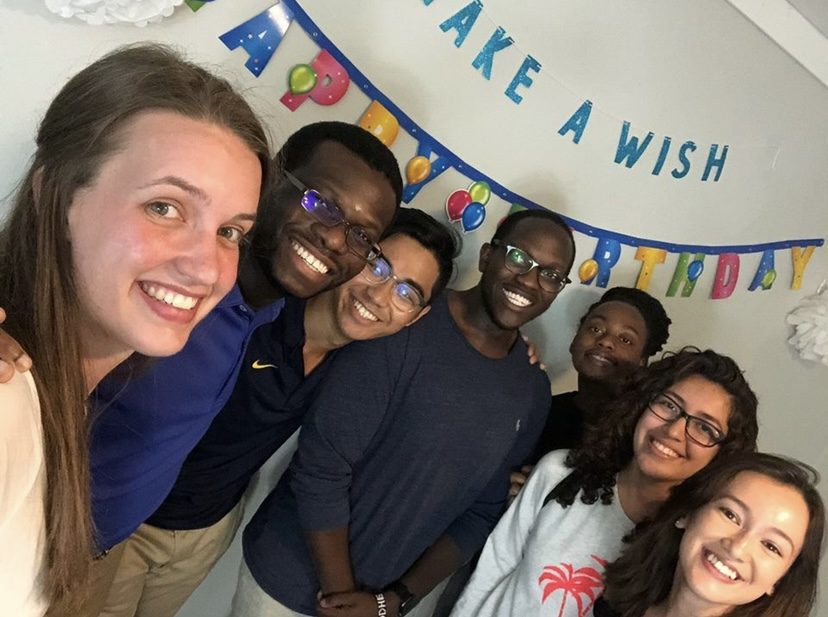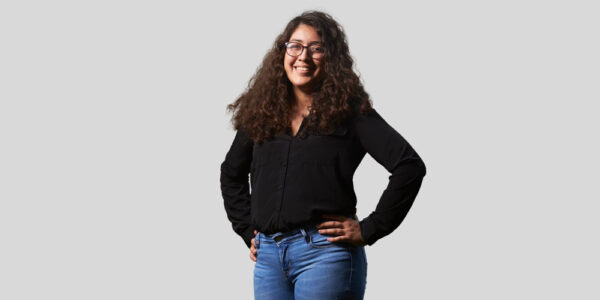“The best four years of my life.” That’s what I was often told about college. Sure, the first week went great, and the second one as well, but by the third week, I was hoping this wouldn’t be the peak of my lifetime.
Maybe it was the excitement of leaving my house, or perhaps the hope for the amazing experiences to come, but I couldn’t wait to go to the University of Michigan – Ann Arbor. Throughout my first day, I was wide-eyed at all the wealth and resources the university had to offer. I couldn’t believe that I had made it in, that I was about to embark on a journey to success at UM. When I began speaking with students in my cohort, however, I was quickly met with a different reality. I was “different.”
Different isn’t always a bad thing. In fact, it’s often quite beneficial. But as an 18-year-old (and even still as a 21-year-old), I struggle to grasp this concept. You see, I had spent my whole life waiting for this moment, always trying to be the best, working toward 100 percent and extra credit, doing the most I could to ensure my success. That was my “difference.” But the difference I was forced to recognize that particular evening was about things over which I had no control, particularly my background.
I am a child of immigrant parents, one of which was on disability and the other sustaining my siblings and me on a teacher’s salary. My family had experienced a substantial number of struggles, but I never considered that these might be impediments to my success. Yet in this world of privilege, such as I had never seen before, I suddenly believed I fell short in every aspect. People were sharing their unbelievably high SAT scores as if they were A–’s when they wanted A+’s. Internships with their parents’ friends, AP classes, summer programs … How on earth did I make it here? I thought. And this is where my struggle with impostor syndrome began.
“Impostor syndrome is . . . doubting your abilities and feeling like a fraud,” according to an article in Harvard Business Review. Boy, did I ever. The more time I spent with my friends, the more I saw how financially and emotionally protected they were by their parents, their families, their communities — and how I wasn’t. Then, things started getting complicated. Debilitating, even. My struggle with impostor syndrome, along with my struggle to afford class materials, began affecting my academics. To top it all off, my brain decided it was the perfect time to start processing childhood trauma.
This is where God stepped in. (Or, at least, this is when I noticed.)
I missed going to church, teaching Beginners Sabbath School, and enjoying the sermons at my Adventist church back home in Berrien Springs, so I decided to go to the Ann Arbor church for the first time. After a 40-minute bus ride and a lot of walking, I finally made it. I barely caught the last “Amen,” but I was glad to be there. I was invited to the potluck (and what college student says “no” to free food?), so naturally I went, but I noticed that we were waiting for something — or someone — to arrive.

“The students are coming! The students are coming!” Then BAM! A crowd of about 15 students hustled through the entrance. I spent the rest of the day with them and was informed that the University of Michigan had not one but two Adventist student organizations — Campus H.O.P.E., a weekly, student-run, on-campus church service plus other activities, and Adventist Christian Fellowship, or A.C.F., in charge of mid-week Bible studies and other evangelistic efforts. I was thrilled. I met the presidents of both organizations and was promptly invited to Wednesday’s Bible study: “Let’s Taco ’bout Jesus.” And, yes, we ate tacos.
I started attending Bible studies each week, and my devotional life was sparked. For the first time, I understood what it meant to study my Bible, and my life and perspective on everything changed completely. I was falling in love with God more and more each day and feeling closer to Him than ever. Despite this, however, everything else in my life continued to fall apart faster than I could try to put it back together. My academics were suffering and getting worse by the minute, while my mental health took a sharp turn for the worse, and I eventually fell into a deep depression.
If you’ve experienced depression, you understand that it makes you lose interest in what once brought you joy, and you struggle to perform daily activities. As a result, I stopped going to class, stopped doing my schoolwork, and stopped taking care of myself. The only thing I did was go to Bible study and attend church every Saturday (Sabbath). It was at this point that I started to question what I perceived to be God’s plan. Why had He brought me to the University of Michigan and then leave me to fend for myself? Why had He promised me success only for me to fail? I started to get upset with Him, which sounds harsh, but it reminds me of a group of people from the Bible.
In Exodus chapter 14, the Israelites found themselves between a sea and an army of Egyptians desiring their death. Although God had met all of their needs up to this point, they turned to Him and became angry, asking why He would deliver them from Egypt to have them die in the desert. Sounds crazy, right? How could they? How dare they doubt God! Yet, in my weakness, God revealed to me that I wasn’t much different from them.
As I said, I continued to go to Bible studies and attended church every Sabbath. I never told anyone what was happening, but He knew. And with each study, sermon, and newfound friendship, God revealed His character to me. He told me that He is a God of fulfilled promises, not empty ones. He is a God of mercy and love and, most importantly, faithfulness, even when I lacked in faithfulness myself. So despite my doubt and confusion, I praised Him. I praised Him for His character and goodness toward me, even when I didn’t feel it.
Time passed. Little by little, He began to deliver me from my depression, from my helplessness, and myself. He made a way where there was no way, as He always does, and somehow managed to rescue my grades. He sent me help from so many different directions, I didn’t know how to react. All I could do was praise Him more.
This is the God we serve — a God of deliverance. This was my experience from my first semester of college and, after that, things got significantly worse. Some days, I didn’t know how I was going to continue, much less succeed. But do you know what has become stronger? My faith. I have seen God deliver me and cannot deny His ability to do it for me again. Although everything in my life may be deteriorating, His protection and His covering over me remain steadfast. And even if His deliverance does not come when or how I want it to, I know that it will come. I encourage you to believe the same.
Gabrielle Umana is majoring in psychology and hoping to obtain a master’s degree in social work. She’s looking forward to serving as the president of Adventist Christian Fellowship, the Adventist organization that propelled her involvement in public campus ministries.
The original version of this commentary was posted by the Lake Union Herald.


